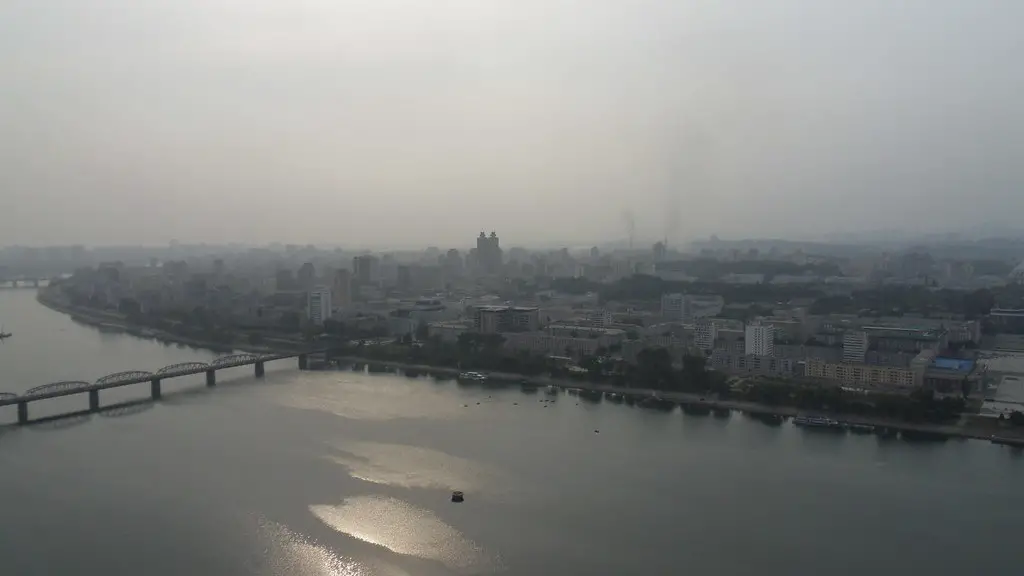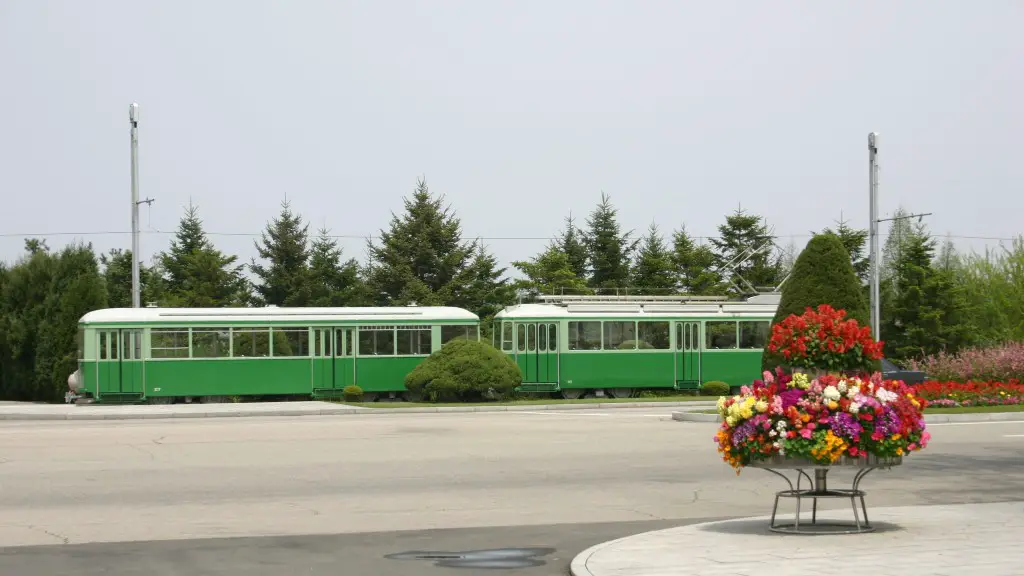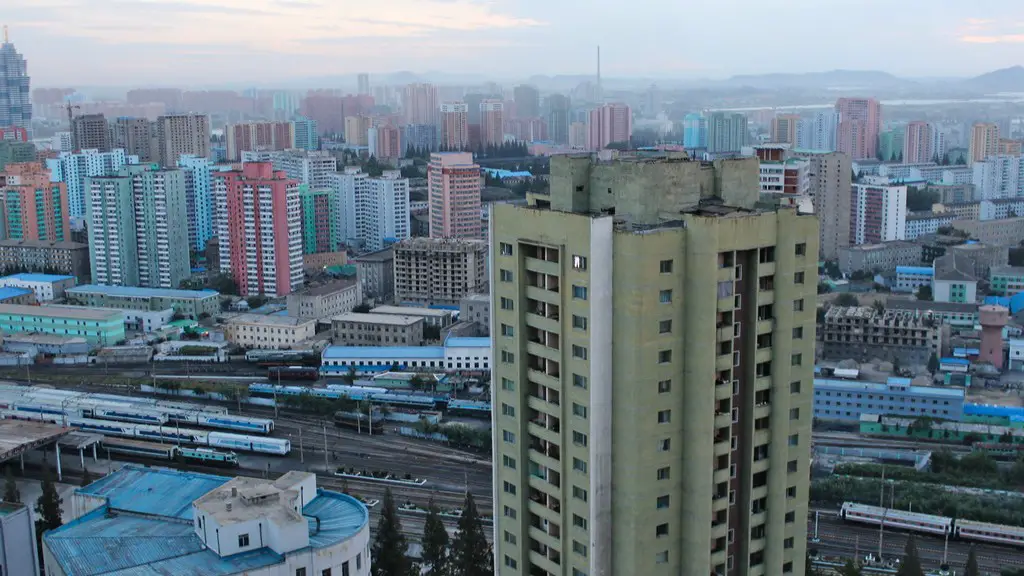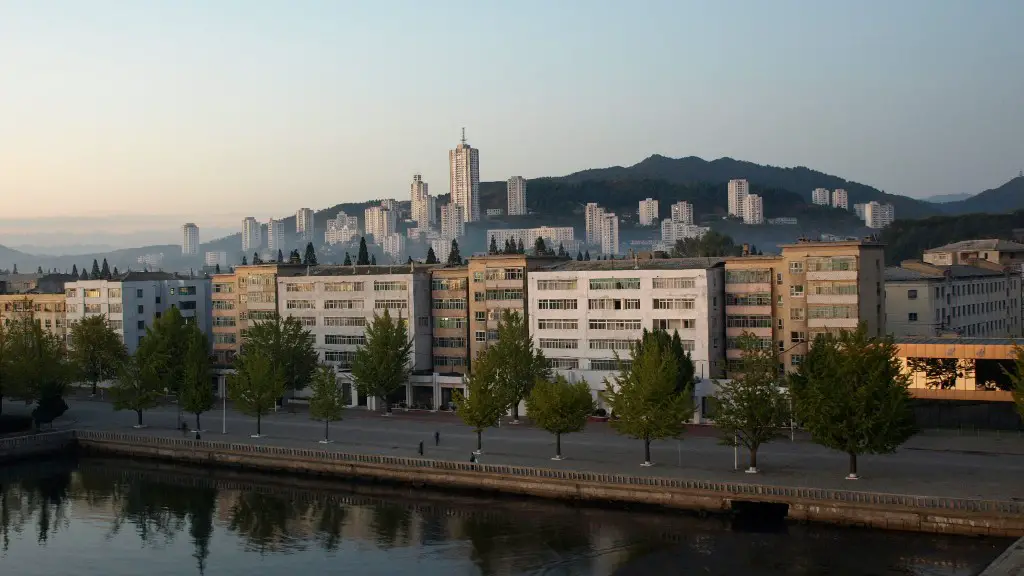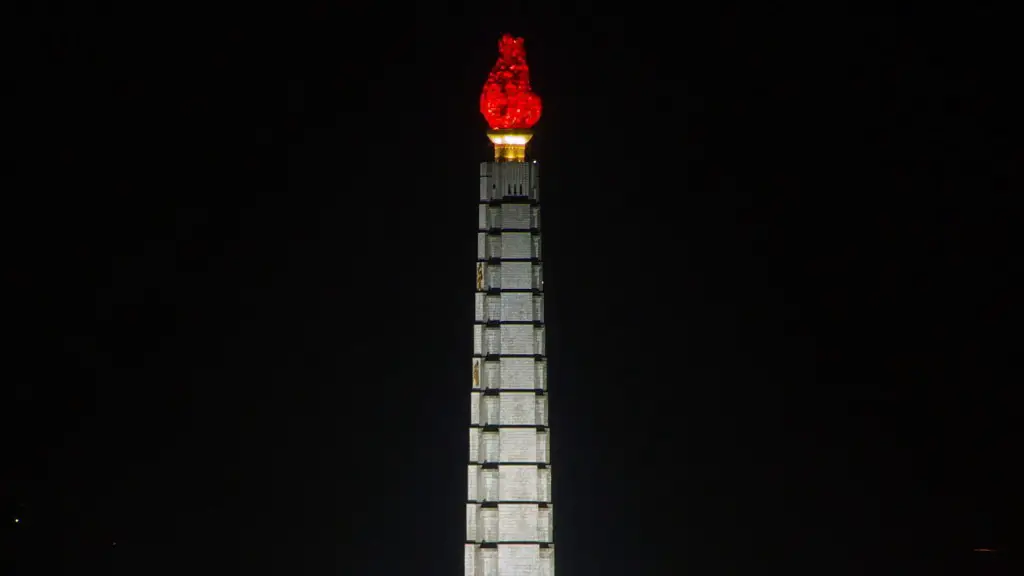Is North Korea A Communist Nation?
For decades, North Korea has been a perplexing and heavily scrutinized nation. According to its constitution, it is a “self-reliant socialist state,” but is often referred to as a communist nation. This article seeks to provide an assessment of North Korea as a communist nation, as well as provide an analysis of its ideological standing.
North Korean leader Kim Il-Sung first implemented the isolationist and nationalist policy known as juche in 1972, which refers to self-reliance. This was a departure from a purely Marxist-Leninist structure, although the original form of communism did provide the foundation for juche. Kim Jong-il is credited with making the policy a more distinct ideological system.
The embrace of juche means that North Korea is willing to be flexible and unpredictable in its economic and foreign policy, resulting in many misconceptions and claims of the nation operating from a communist framework. Despite this, juche is hardly a communist doctrine, and North Korea has adopted more of a hybrid form of its own creation. North Korea has re-appropriated elements of communism and melded them with its own beliefs, resulting in a distinct ideological structure.
In terms of its party structure, North Korea has an organized and hierarchical communist party that mirrors the government leadership. The close connection between the party and state means that the party is an effective instrument for implementing policy and maintaining control. This is similar to how communism has traditionally operated in other countries, although North Korea has adapted the system to have more regional control and a greater emphasis on regionalism.
Economically, North Korea has also veered away from a pure Marxist-Leninist framework. Capitalism has been partially embraced and private enterprise is more tolerated than before, although the government still maintains strict control of the market. This is indicative of the nation’s willingness to “cherry pick” elements from various ideologies, as juche has also seen the borrowing of capitalist ideas.
The overall assessment is that North Korea is not a genuinely communist nation, but rather contains elements of communism reinterpreted and rebranded in a hybrid form known as juche. This ideological framework is the nation’s foundation, and is the main defining feature of its culture and society.
Political Structure
North Korea is led by an authoritarian government and is highly militarized in order to maintain control. The all-powerful Worker’s Party of Korea is the country’s main political apparatus, which exercises enormous control over the government, state agencies, and the military.
Political power is consolidated among a very small group of individuals, with little to no input from any other sources. This lack of public oversight has enabled the party to exercise an enormous amount of control over the nation’s affairs, with little to no challenge from the public.
The government also heavily scrutinizes all internal criticism, either through censorship, surveillance, or using imprisonment to eliminate any form of dissent. This has created a nation that is highly regimented and structured, with no room for any form of self-expression.
Economic System
North Korea has an economy that is primarily based on the Communist principles of centralization and collective ownership, with the majority of resources being managed and distributed by the state.
The majority of the nation’s labor force is employed in state-run enterprises, where workers are heavily monitored and subject to strict discipline. Private industries are allowed to operate, however the government maintains a high level of control over them.
North Korea’s economy is heavily reliant on international aid and assistance in order to survive. The nation is also notorious for its human rights abuses, corruption, and poor working conditions, all of which have had a significant impact on the country’s economic wellbeing.
Societal Impact
North Korea has a highly stratified society that is largely structured around the party elite. The nation’s citizens are subject to the state’s rigid ideological framework, and face severe restrictions on their freedoms.
The country also has a wide range of political prisoners, some of which have been held for decades without charge. This has raised serious questions about the state’s commitment to human rights, as well as its ability to adhere to international standards.
The lack of social mobility and economic advancement has also had a detrimental impact on North Korean citizens. The income gap between the elite and the general population is wide, and has created an entrenched level of poverty with no signs of improvement.
Impact On Global Relations
North Korea is one of the world’s most isolated nations, with few allies and limited international involvement. This has enabled the nation to remain largely uninfluenced by international trends, and maintain its own unique ideological framework.
However, the nation’s nuclear ambitions and strong military presence has made it a source of international tension and concern. This has led to an ever-increasing level of diplomatic and economic sanctions, with little to no room for negotiation.
The nation’s reluctance to cooperate with the international community has also prevented any kind of meaningful dialogue or progress in terms of its human rights situation, as well as its commitment to international standards and protocols.
Domestic Ideology
North Korea’s ideology is largely based on the nationalistic beliefs of juche, which has enabled the nation to develop a more unique and self-sufficient form of governance.
The nation’s political ideology is further enforced by its extensive propaganda network, which emphasizes the power of the state, and the loyalty of its citizens.
North Korea is particularly focused on the “glorious” past of the nation’s leaders, as well as its revolutionary role in the international arena. This has created a narrative which is heavily rooted in the nation’s past, and is used to propagate support for the state.
Nationalism
North Korea portrays itself as an independent and self-reliant nation, and has embraced its nationalistic tendencies to further solidify its independence.
The nation’s leaders stress the importance of the nation’s identity and the “Greater Korea” narrative, which seeks to unite the Korean people and instill a sense of pride.
North Korea has also been highly critical of other nations, particularly those in the West, as a way to maintain its own unique identity. This has contributed to the nation’s isolation, but has also enabled it to remain largely unaffected by international trends.
Conclusion
Overall, North Korea is not a truly communist nation, but rather has some elements of communism woven into its ideology. The nation’s leader established and promoted juche as a way to differentiate from traditional communist countries, and has enabled the nation to create a unique and independent form of governance.
The nation has also seen some limited adoption of capitalism, as a way to ensure the survival of the state. Despite this, North Korea is still heavily reliant on international aid and maintains a highly regimented and oppressive regime.
The assessment of North Korea as a communist nation reveals that it is heavily modified version of the ideology, as well as a reflection of the nation’s unique history and identity.
Socialism
North Korea has slowly embraced a more socialist worldview in recent years, with an increasing focus on social welfare and the rights of citizens. The nation’s constitution stresses the importance of the “socialist system”, and has seen the government increase its spending on social programs.
Universal healthcare and education have been provided for all citizens, as well as improved living standards. This has enabled the nation to become more self-sufficient and less reliant on international aid.
Although the nation’s social policies are largely focused on maintaining its unique ideology, it is indicative of the nation’s willingness to embrace change in order to bolster its economy and remain competitive in the global arena.
Relations With The West
Relations between North Korea and the West have been strained for decades, with the nation insistent on advancing its own interests and maintaining its independence.
The country’s nuclear ambitions have been a major source of conflict between the two sides, with the West imposing sanctions and engaging in a “maximum pressure” campaign in order to bring North Korea to the negotiating table.
The nation has also seen a growing number of defectors in recent years, which has led to an even greater level of tension between the two sides. These defectors often face a range of legal and social challenges when returning to the West, and have further strained the relationship.
Media And Information
North Korea’s media and information sector is heavily controlled by the government, and doesn’t allow for any form of free press or open dialogue.
The media is used as a tool of the state to promote certain ideas, and silence any criticism or dissent. This results in a highly censored and one-sided communications environment, with little to no access to other perspectives.
However, the nation has recently seen some progress in regards to its media landscape, with some limited access to outside information. This has enabled citizens to access news and information from other countries, and removed some of the government’s control over what its citizens can and cannot see.

